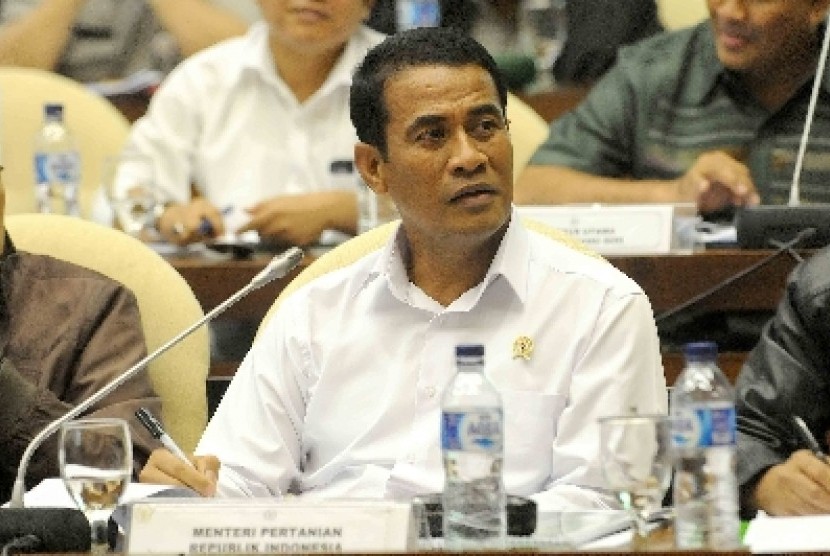REPUBLIKA.CO.ID, BENGKULU -- The upstream and downstream food industries must be ready to face the upcoming ASEAN Economic Community (AEC), which will be implemented in December, Agriculture Minister Andi Amran Sulaiman stated.
"If we are not prepared now, then Indonesia's food industry will not be able to compete in the AEC era," the minister emphasized during his working visit here on Wednesday.
He stated that while preparing the agricultural sector, priority should be given to the food crop sector by improving infrastructure such as irrigation and other production facilities.
Improved irrigation and production facilities are expected to increase agricultural production to meet the nation's needs and improve the farmers' welfare.
"We can imagine (the impact) if our farmers are not ready while the rice from neighboring countries is good," the minister noted.
Therefore, Indonesia should utilize the remaining time to improve its agricultural infrastructure, so that the farmers will be able to compete.
Besides improving the irrigation system, which can provide water to 3 million hectares of rice fields, the Ministry of Agriculture should develop the agricultural downstream industries.
"The sugar industry will be developed with the construction of 10 sugar mills. The government will also develop other downstream processing industries for agricultural products such as coffee, cacao, and others," he remarked.
The minister was visiting Bengkulu to witness a rice grand harvest and to symbolically hand over assistance such as 71 units respectively of hand tractors and rice harvest machines to the local farmers.
In the meantime, Vice President Jusuf Kalla has earlier called on Indonesians to not be scared to face the AEC.
"Many people are worried and scared of facing competition in the regional market," Kalla noted while opening the national working meeting of the Association of Provincial Administration Across Indonesia (APPSI) in Ambon, Maluku, recently.
In fact, Kalla is of the viewpoint that Indonesia will reap numerous benefits from the implementation of the ASEAN free trade.
"The implementation of the AEC, effectively starting early 2016, could have negative and positive impacts. The trade opportunities will be wide open, but, on the other hand, we need cooperation to face the competition," he stated.
Indonesia must be able to produce competitive goods in terms of prices and quality, he noted.
The AEC will also provide opportunities to Indonesians to work in other countries, he remarked.
Economically, Indonesia is a middle-class nation and placed above Laos, Cambodia, Vietnam, and the Philippines but below Thailand, Malaysia, and Singapore.
Indonesia should particularly be concerned about brain drain, as its quality and capable human resources may choose to work in other countries, the vice president noted.
In preparation for the AEC, the government plans to lower the bank interest rates and logistic costs by improving productivity and infrastructure and shortening bureaucratic procedures, according to Kalla.


